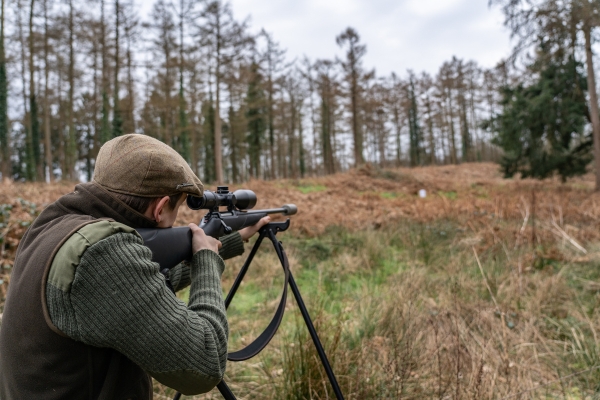
Wild venison: a valuable resource
Wild venison provided by BASC-trained deer stalkers aligns with Labour’s commitment to sourcing food with minimal environmental impact.
Get information on the legal shooting season for mammals and birds in the UK.
Apply for funding for your project or make a donation today
Comprehensive information and advice from our specialist firearms team.
Everything you need to know about shotgun, rifle and airgun ammunition.
Find our up-to-date information, advice and links to government resources.
Everything you need to know on firearms law and licensing.
All the latest news and advice on general licences and how they affect you.
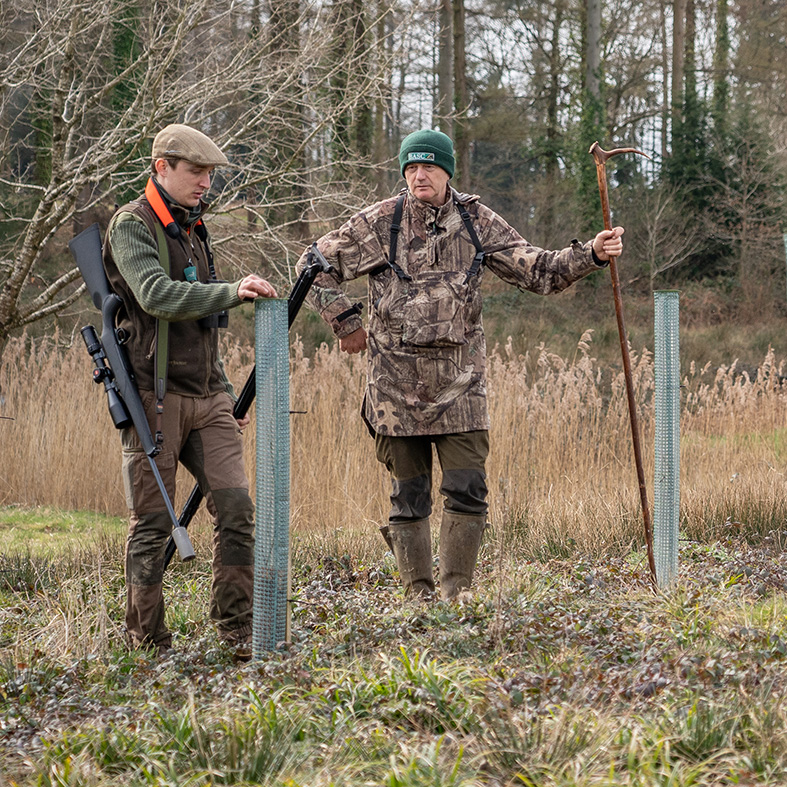

An experienced mentor can help novice stalkers progress after their DSC1 course and finding the right person is something BASC can assist with.
Learning to stalk and manage deer in the UK is a little like learning to drive. Once you’ve read the Highway Code and taken your theory test, you might think you know it all. But when you’re behind the wheel for the first time, that illusion quickly evaporates. Real world experience counts.
Similarly, after four days of classroom learning on your Deer Stalking Certificate 1 (DSC1) course, and passing the multiple-choice exams and shooting test, it’s tempting to believe you’re ready. But again, there’s a vast gulf between classroom learning and being out there in the field.
In order to sell venison to Approved Game Handling Establishments (AGHEs), British stalkers need to be ‘trained hunters’, with a unique number assigned to them by the Food Standards Agency. One way to achieve the status, is through the DSC2 qualification. This requires a successful ‘witnessed stalk’ to be conducted under the scrutiny of a specially trained ‘approved witness’.
“Do not rush into your DSC2,” were the parting words of my BASC DSC1 trainer, Chris Howard. “Get out there and get some experience, first.” I found myself nodding in agreement. I’d done some stalking before the course, my head was stuffed with recently acquired deer knowledge, and yet I knew I wasn’t nearly ready to tackle my DSC2 witnessed stalk.
Apparently, I’m not alone. Of the nearly 33,000 people who’ve passed their DSC1, only 6,000 have gone on to achieve the higher qualification. “I don’t know if it’s because people think DSC1 is enough,” says Martin Edwards, BASC’s head of deer and woodland management, “but perhaps they should be thinking like the driving test. DSC1 is mainly theory and DSC2 is the practical element and without both they’re not fully competent.”
Of course, there will be seasoned stalkers with neither DSC1 nor 2 to their names, who’d argue they are competent, but in an increasingly risk-averse world, qualifications are taking on greater significance. For institutional bodies, like the National Trust and Forestry England, DSC2 is now a minimum requirement for letting anyone stalk on their property. If we’re going to make significant progress towards reducing deer numbers in the UK, it’s clear that more of us are going to need that DSC2 certificate.
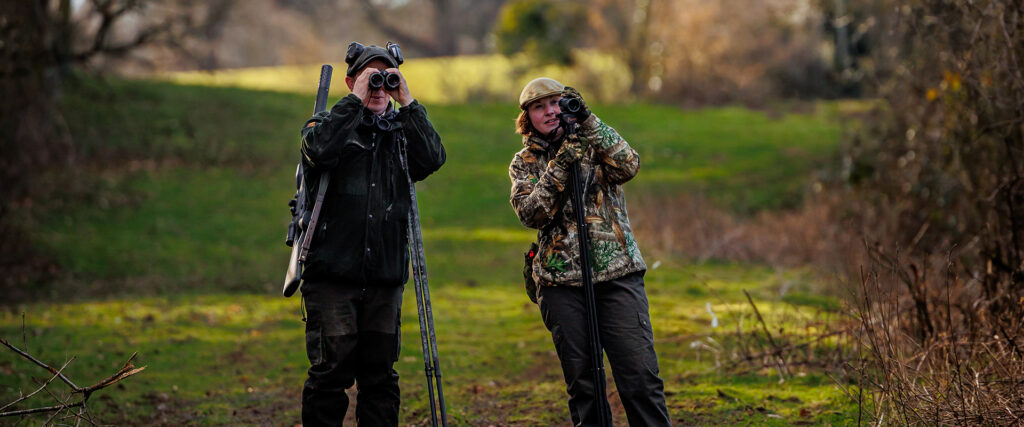
Last year, as part of its effort to increase the national cull, BASC set up a database designed to connect those in need of deer management with fully qualified members who are able to provide it. Those submitting their details were also asked if they’d be willing to act as mentors to novice stalkers. “We act as a dating agency,” says Martin Edwards, “putting members with DSC1 in touch with local, experienced stalkers who’re willing to provide guidance and ideally practical stalking opportunities, so they can develop their skills to a point where they’re capable of passing DSC2.”
A couple of months after I’d taken my DSC1, BASC sent out an email on my behalf asking if anyone in my area would be prepared to mentor me. Given that I live in London, I wasn’t overly hopeful, but two people responded immediately. I made enquiries and chose the one who lived closer to me.
A few days later I met Steve Trippit for the first time, and we drove in the pre-dawn to a fruit farm which was attracting the attention of the local roe deer. I’d turned up without my rifle, which Steve clearly thought was strange, but I wanted to send the message that I was there to observe and learn, not simply to score some free stalking. In the event, when a buck came in to investigate us as we lurked among the gooseberries, Steve handed me his Blaser K95 and insisted I take the shot.
It was a good start to our partnership. The buck went down cleanly, and we were delighted we’d had success on our very first outing. We found somewhere for a suspended gralloch and went through the process methodically, with me doing the messy work. It was exactly what I needed.
As well as being an extremely experienced deer manager, Steve is an excellent and patient teacher. We both have families and busy lives and so we manage to stalk together about once a month. Through a combination of Steve’s teaching, and the process of simply gaining more experience, my DSC1 knowledge is nicely marrying up with what I’m learning in the field.
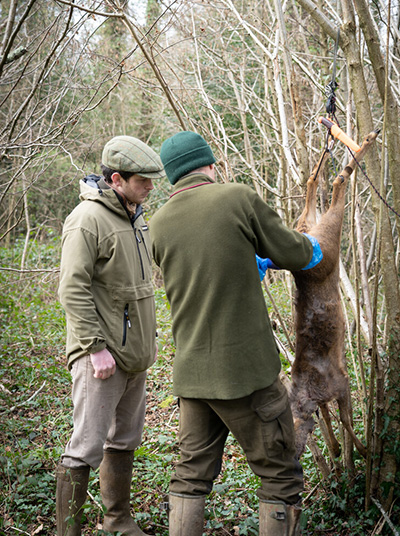 Steve has taken the DSC1 instruction further, prompting me to think more carefully about species and sex identification. “Would you have been sure that was a doe if I hadn’t told you?” he once asked in the immediate aftermath of a shot taken at dusk. He’s advised me on shot placement, encouraging me to spend more time at the range, and is constantly trying to correct my less-than-expert knife skills. Given that we’re often out after fallow, his no-nonsense “you shoot it, you drag it” policy has prompted me to consider the practicalities of carcass extraction more than I might have done otherwise.
Steve has taken the DSC1 instruction further, prompting me to think more carefully about species and sex identification. “Would you have been sure that was a doe if I hadn’t told you?” he once asked in the immediate aftermath of a shot taken at dusk. He’s advised me on shot placement, encouraging me to spend more time at the range, and is constantly trying to correct my less-than-expert knife skills. Given that we’re often out after fallow, his no-nonsense “you shoot it, you drag it” policy has prompted me to consider the practicalities of carcass extraction more than I might have done otherwise.
I’m extremely grateful to Steve, who’s given me so much advice while being wonderfully generous with his time. Thanks to my mentor, I feel I’m getting there. On a recent stalk in Hampshire, I was happy to take the lead, spotted and quickly took a roe, and carried out my first completely unaided gralloch. While I still have much to learn, my confidence has increased and I’m now thinking of signing up for my DSC2 witnessed stalk towards the end of this year. Whatever happens, I know Steve and I will remain friends and perhaps one day I’ll be able to pay his kindness forward and mentor someone myself.
I thought it would be useful to get Steve’s input too, so I asked him why he does it and what he gets out of it. He replied: “I do it because I enjoy being part of something. I’m looking to pass on some knowledge, and I like seeing the enthusiasm and enjoyment of others reaching milestones on their stalking journey.
“Mentoring someone is quite a personal thing but I’d say as long as you have some time, are patient and genuine, it can be rewarding for both of you. But you shouldn’t be looking to make financial gain out of the arrangement. If this is your motivation, then I don’t think it’s the correct decision.”
It’s worked out very well for us and it’s a great way to bridge the gap between DSC1 and DSC2, so why not give it a go?


Wild venison provided by BASC-trained deer stalkers aligns with Labour’s commitment to sourcing food with minimal environmental impact.
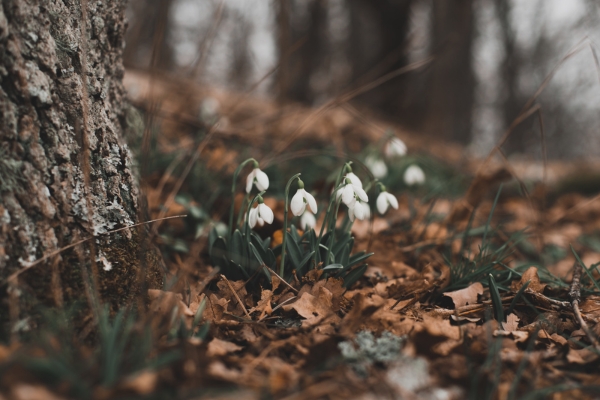
At Southill Estate in Bedfordshire, head gamekeeper Paul Dunn is showing how practical deer management can restore habitats and support wildlife at scale.
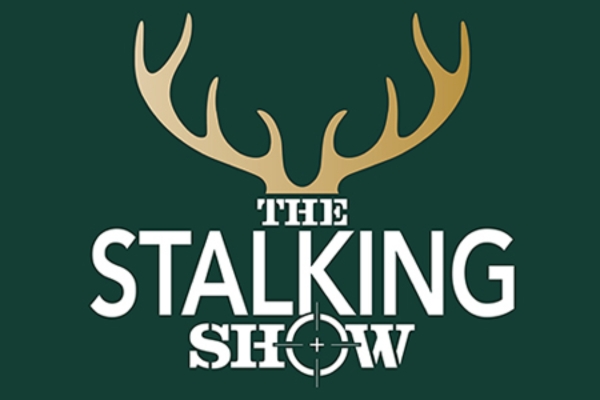
Find out what BASC has going on at The Stalking Show 2026, which takes place from 11-12 April at Staffordshire County Showground.